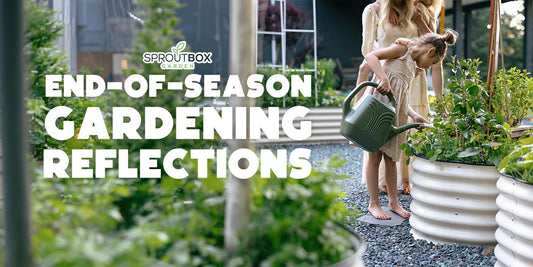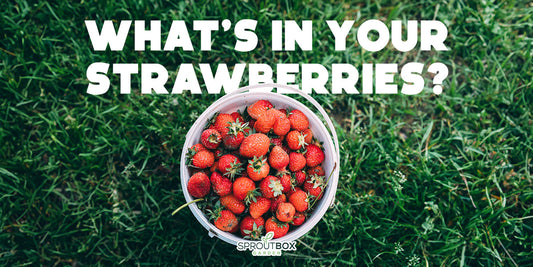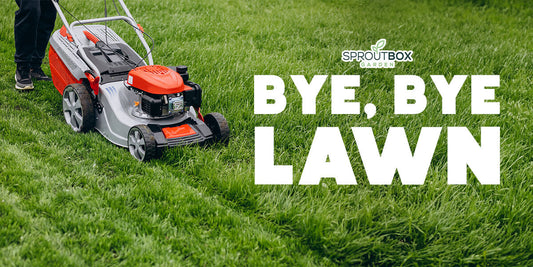Gardening on a Budget: 5 Ways to Save Money on Your Raised Bed Garden

Starting a garden can be expensive, but don't let that stop you from pursuing your green thumb dreams! With the right knowledge and a little creativity, you can have a beautiful and bountiful garden without breaking the bank.
That's why we've compiled a list of five easy ways to help you save money while still enjoying a thriving vegetable garden. So, whether you're a seasoned gardener or just starting out, these tips will help you save money, reduce waste, and create a beautiful and productive raised bed vegetable garden. Don't let cost hold you back any longer - let's get started!
1. Water Wisely
Watering your raised bed garden can be a significant expense, especially during hot and dry weather. To save money and conserve water, try using a drip irrigation system. This type of system delivers water directly to the roots of your plants, minimizing evaporation and runoff. You can also consider using a rain barrel to collect rainwater, which can be used to water your garden during dry spells.
Finally, make sure to water your plants early in the morning or late in the evening to reduce water loss due to evaporation. By watering wisely, you'll not only save money, but also promote healthy plant growth and conserve this precious resource.
2. Save Money on Soil and Embrace Hugelkultur
Soil can be one of the biggest expenses when starting a raised bed garden. Instead of buying expensive bags of soil at the garden center, try making your own compost. Composting is easy and can be done with food scraps, yard waste, and other organic materials. Not only will you save money on soil, but you'll also be helping the environment by reducing waste.
You can even add coffee grounds, eggshells, and leaves to your compost pile to help balance the pH levels and add essential nutrients to your soil. Additionally, consider mixing in vermiculite, perlite, or sand with your compost to improve drainage and aeration.
Another way to save money on soil and improve your garden's fertility is by embracing hugelkultur. This centuries-old gardening technique involves building raised garden beds over mounds of decaying wood, leaves, and other organic materials. As the materials break down, they release nutrients into the soil, creating a rich and fertile growing environment for your plants. Hugelkultur also helps with water retention, reducing the need for frequent watering.
Check out our step-by-step guide on how to choose the right soil for your garden.
3. Plant in Succession
One of the biggest mistakes new gardeners make is planting everything at once. This can lead to overcrowding and poor growth. Instead, try planting in succession. This means planting a few crops at a time and then planting more as the first crops are harvested.
Not only will this help you save money on seeds, but it will also ensure a continuous harvest throughout the growing season. For example, plant lettuce and spinach early in the season, followed by warm-weather crops like tomatoes and peppers.
4. Use Companion Planting
Companion planting is a great way to save money and also help your plants thrive. By planting certain plants together, you can create a natural balance that will help deter pests and diseases. For example, planting marigolds with your vegetables can help repel harmful insects, while planting basil near your tomatoes can improve their flavor.
Additionally, consider planting nitrogen-fixing plants like beans or peas alongside heavy feeders like corn or squash to help improve soil fertility.
5. Protect Your Plants
One of the biggest expenses for any gardener can be replacing plants that have been damaged or destroyed by pests or extreme weather conditions. To save money and protect your plants, invest in some inexpensive protective covers like row covers, netting, or even a simple plastic sheet.
These covers can help protect your plants from pests and harsh weather and will save you money in the long run. Additionally, consider using organic pest control methods like handpicking or introducing beneficial insects like ladybugs or praying mantises to your garden.
Take your garden to the next level.
The whole point of growing your own food at home is to offer your family healthier organic veggies for a fraction of the cost of groceries. But sometimes, following some advice online or from your local big-box garden centre, you can end up spending the same amount of money, if not more!
Follow these tips and get the savings - and high-quality meals - you signed up for in the first place.
Before we go, here’s a bonus one… You know a very high cost that sneaks up into most people’s raised bed gardens? Buying new raised garden beds every year.
That’s why getting a Sproutbox Garden metal raised bed saves you money. They’re built to last up to 20 years, so they won’t rot away or rust from the weather. The only time you’ll have to get another one will be to expand your garden!



